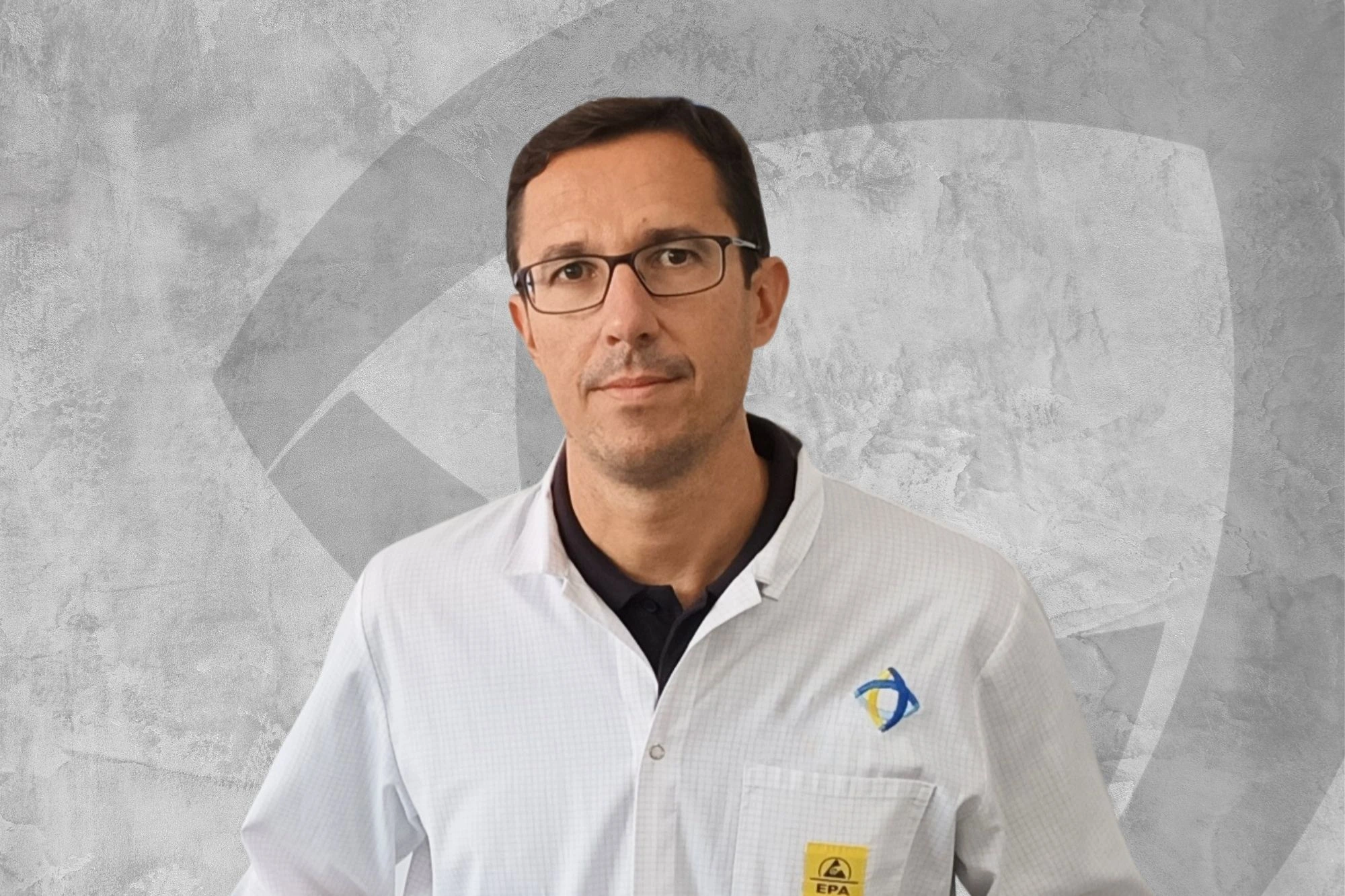Name: Miguel Navas
Education:
- Bachelor´s Degree in Telecommunications Engineering
- Specialization in Electronic Systems
University of Madrid
Current Position: Production Manager at EIIT Madrid

Tell us a bit about how long you’ve been at EIIT and why you’ve stayed with us for so many years.
I started at EIIT in June 2004. I spent 11 years as part of the Test Engineering Department until 2015, when I moved to the Production Department as a manager. What motivated me to stay was the type of work, as well as the great human quality of my colleagues.
What is your main role as Production Manager and what are your key responsibilities?
As a manager, my main role is to coordinate personnel and the tasks to be carried out, ensuring that projects are delivered on time and with the required quality. Additionally, I provide constant support to my team, colleagues from other departments, and clients.
As I always say, I see myself as a “problem solver,” always putting out fires and looking for solutions. Regarding my responsibilities, there are many: management, coordination, cooperation, commercial and technical work, direct client relationships, and managing quality and efficiency..
Tell us about the biggest challenges you face in your role and how you have addressed them.
The Madrid Production Department is not a traditional production department focused solely on assembling and wiring fixtures and test equipment — that’s only part of it. In reality, it is a fairly comprehensive department composed of several distinct sections: commercial, electrical engineering, mechanical engineering, machining, assembly and wiring, and ICT test engineering. The main challenge is managing, coordinating, and supporting each of these sections on a daily basis, which requires a broad and general understanding of the different processes.
How has the production industry evolved in recent years, and how has this impacted your work as a manager?
In our business sector, the industry evolves at a rapid pace, and so do our clients’ needs: new technologies, new processes, etc. Therefore, you either evolve or you get left behind. My job as a manager is to stay up to date with these changes to continue offering professional solutions to our clients. For this, continuous training and improvement are essential, as well as constant organization and adaptation of our production processes.
What key skills and qualities do you believe are necessary to succeed as a Production Manager?
Among the main skills and qualities, I would highlight:
- Coordination and management skills: objective management, time management, resource management, etc
- Problem-solving ability and critical thinking
- Organization
- Communication, empathy, motivation, and the ability to inspire.
What is your approach to maintaining efficiency and quality in the production process?
To maintain efficiency and quality, it is essential to constantly review and supervise processes, evaluate potential improvements, and adapt them accordingly.
How do you ensure your team stays motivated and committed to achieving production goals?
Sometimes it is difficult. The heavy workload and daily stress make this task quite challenging. However, I firmly believe that internal communication between a leader and their team is crucial for keeping the team motivated and engaged. I am fortunate to have a great team.
What are the main trends or technological advancements you have implemented in your production area, and how have they improved results?
In our production area, the main technological advancements focus on improving processes and the quality of the final product: improvements in design software, tools, workstations, new machining machines, and inspection and testing equipment for final validations. We also apply new materials to improve robustness, precision, and durability.
Finally, what has been one of the most challenging production projects you’ve worked on, and how did you approach it?
There have been many, but one that stands out is an ICT/FUN fixture developed for Visteon Slovakia for their client. This fixture presented a technical challenge, both in the mechanical solution and in the electrical/electronic testing solution, as it involved several testing technologies that were developed in cooperation with a technological partner.



